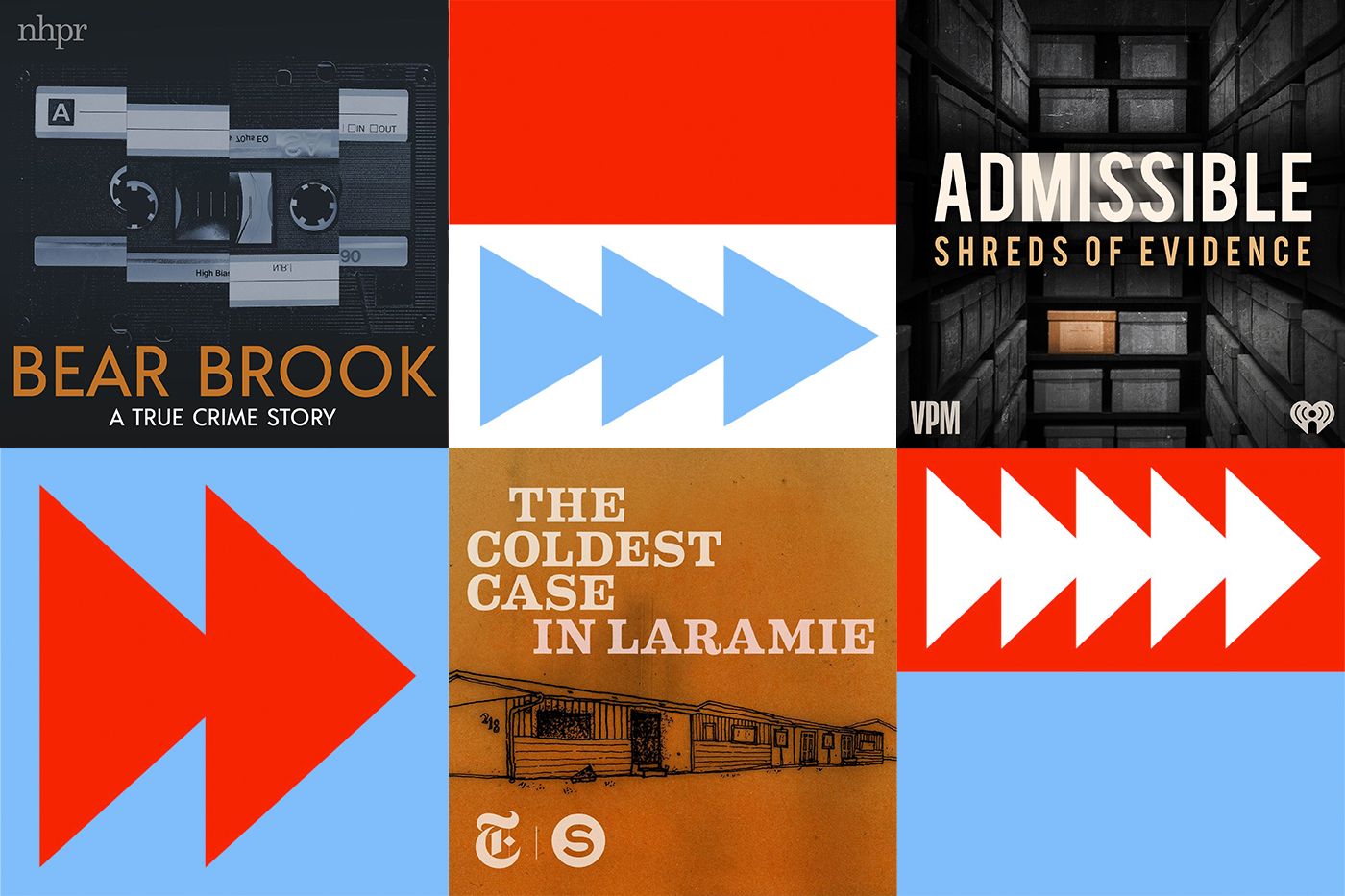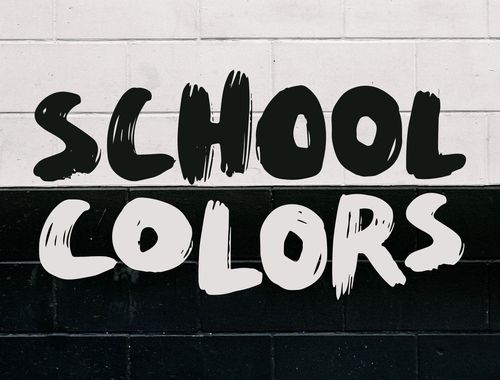| Yeah, so, it turns out, The Traitors UK is even better than I was expecting. |
| Enjoying 1.5x Speed? Feel free to send this newsletter to your buds, and click here to read previous editions. And as always, you can reach me at nicholas.quah@nymag.com or find me on Twitter. |
| Want more recommendations from our critics? Subscribe now for unlimited access to Vulture and everything New York. |
 |  | | Photo-Illustration: Vulture | | | | Were it not for weather, I would’ve spent last Thursday at the Hot Pod Summit in Brooklyn, moderating a panel about narrative podcasts in the post-boom era. I had pitched the panel on the basis of a take I’ve heard congealing over the years: that narrative pods often don’t make enough money to justify worthy investment. The argument has always struck me as short-sighted (and boring), and so I wanted to shake things up a bit. Alas, ‘tis a bummer I couldn’t personally shepherd that discussion. |
| In any case, being grounded did mean I could mull a little longer on The Coldest Case in Laramie, the latest joint from Serial Productions, which I reviewed for the site. (And which, presumably, does justify the New York Times’ investment in the studio.) My feelings on the series are fairly mixed. I liked it a lot as a straightforward piece of cold case journalism. Many of the individual components spoke to me: the Mountain West locale, the strength of the tape, the noir-esque aesthetic wrapping around host Kim Barker’s narration. The music, by Kwame Brandt-Piece, was also a highlight, strange and cloudy and unexpectedly reminiscent of Vangelis’ Blade Runner score. (Maybe I’m just pigeonholing all synthy sounds.) But Laramie’s straightforwardness is specifically the thing that also gave me pause. I tend to associate Serial Productions with a certain grandiosity in ambition, or at least distinct idiosyncrasy. It’s my understanding that most people feel cool on The Improvement Association, the studio’s look at the muck of electoral fraud claims through one story in Bladen County, North Carolina. “Hard to follow” is the common critique I’ve heard. But I liked that project a lot because of its wonky, messy, almost winding nature; the more idiosyncratic, the better. My thing about Laramie was that its flavor was a little too familiar for me — not just within the context of Serial Productions’ oeuvre, but within true crime podcasts as a whole. |
| Of course, there is some complication with coding Laramie as “true crime,” as is the case for Serial. (In my write-up, I tried playing around with a more general term of “nonfiction crime storytelling” to broaden out the impression, but that feels clunky even for me.) In a recent review of Rebecca Makkai’s “I Have Some Questions for You,” a new novel tackling true crime — and specifically, in places, the modern form of the true crime podcast — The New Yorker’s Katy Waldman opens with a graf on Serial’s relationship with the mechanics of true crime, which she describes as “ambivalent.” That’s pretty much the right word, I think, and this ambivalence persists to this day. Still, the combination remains winning: Making use of the genre’s natural hooks as means to advance a larger project — a Trojan Horsing, if you will, ahem ahem — obviously continues to work well for Serial Productions. It’s not unlike The Wire being constructed as both a crime show and an expansive critique of systemic rot. Though, of course, it’s worth noting David Simon did end up feeling frustrated with viewers spending more time talking about their favorite characters than about the issues the show was trying to highlight. |
| Beyond Laramie, listeners looking for new, uhm, “nonfiction crime storytelling” projects have no shortage to choose from over the past month. Let’s flag two in particular. Firstly, New Hampshire Public Radio’s Bear Brook recently returned with a follow-up, building on a first season that was notable in its time for striking a near-perfect balance between being pure genre and a sensitive piece of journalism. That project is produced, in part, by Crime Writers On…’s Rebecca Lavoie, so one can expect a level of heft. Secondly, consider picking Admissible: Shreds of Evidence, which is hosted by Tessa Kramer, produced with Radiolab OG Ellen Horne, and distributed in partnership with Vermont Public Radio. More of a criminal justice documentary than anything else, the series roots itself in a fundamental complication of an arena that’s become central to many wrongful conviction efforts: DNA evidence. Between Laramie’s questions about the reliability of memory and Admissible’s questions about the reliability of evidence, the void calls to us. |
| Anyway, I should pick up Makkai’s novel. |
| So this is interesting: Normal Gossip is joining Radiotopia. The move was announced at the On Air Fest in Brooklyn over the weekend, and contemporaneously through a short update on the podcast’s feed, which you can find here. |
| The fit strikes me as a no-brainer, frankly. Hosted by Kelsey McKinney and produced by Alex Sujong Laughlin, the show has carried a distinctly independent spirit since the very start, both in terms of its actual material and how it publicly communicates itself as a production. The latter in particular feels contiguous with the historical sensibilities of Radiotopia, the podcast collective established by Roman Mars and PRX was back in 2014 that’s long tried to similarly model a meaningful alternative to the grind of for-profit publishing. |
| Signing Normal Gossip is a coup for Radiotopia. The collective has kind of been in the wilderness for a bit, after 99% Invisible decamped for SiriusXM and Criminal for Vox Media in 2021. (Vox Media owns New York Magazine, by the way.) Both were widely understood to be Radiotopia’s biggest shows. The time since has seen the collective push a little deeper with its limited project umbrella, Radiotopia Presents, which is responsible for some of the more interesting projects over the past few years — S***hole Country and My Mother Made Me, among them — and last year’s revival of Avery Trufelman’s Articles of Interest made for a good shot in the arm. But there hasn’t yet been a clear replacement for an “anchor” show of sorts. Given its popularity and momentum, Normal Gossip feels like it could be a great new center of gravity for the Radiotopia brand. |
| Even so, the arrangement between Normal Gossip and Radiotopia is somewhat unique. I thought the update released by McKinney and Laughlin was succinct, but a few people still wrote to me expressing some confusion about what it means. Which, I guess, is understandable. I believe MBA-types call this kind of thing a potential “channel conflict.” |
| Anyway, this is what I understand: Normal Gossip, you might recall, was created as part of Defector Media, the employee-owned and subscription-based digital publication formed by Deadspin alums. McKinney is part of that stable; Laughlin, previously a freelancer for the operation, is also now officially part of the team. It’s my understanding that the general composition of Normal Gossip doesn’t fundamentally change. McKinney and Laughlin continue to retain ownership of the show, and it’s still part of the Defector Media brand. The whole point of Radiotopia is to serve as a layer supporting independent shows without owning them. In this arrangement, PRX functions as a partner on sales, marketing, distribution, and technology. You’ll eventually start hearing McKinney and Laughlin promote other Radiotopia shows on Normal Gossip. They’ll also pop up on other Radiotopia podcasts to talk up their show, and be a part of the collective’s membership drives. A PRX rep confirmed that in this arrangement, Normal Gossip will benefit from both Defector Media subscriptions and the Radiotopia membership pool. |
| Of course, for most listeners, all this is probably TMI. But for those who are interested in this back-end stuff, it’s nothing that clear, consistent communication can’t smooth out, and as previously established, Normal Gossip has proven to be pretty good in clearly and consistently communicating its message. |
| ➽ So yeah, I wrote about The Witch Trials of J.K. Rowling. Here’s an excerpt: |
| The series purportedly seeks to engage with the Rowling controversy as comprehensively as possible, on the one hand, by understanding where Rowling is coming from based on the extensive interviews she’s granted to the show and, on the other hand, by working to understand where everyone else is coming from through what [host Megan] Phelps-Roper has said are interviews she’s been conducting with people “on all sides of the conflict” over the past year. She lists these various sides in an essay introducing the project: “trans adults, teens, clinicians, and advocates; historians, reporters, authors; Christians who boycotted Potter in the 1990s; doctors, lawyers, and even experts on witch trials.” |
| Phelps-Roper lays out her intent in that essay. “I remain a believer in the power of conversation,” she writes. “The ones I had for this series challenged my assumptions and showed me that this conflict is even more complex than I had imagined. I don’t pretend to have answers to the deep questions at the heart of this series. But I’m more persuaded than ever that talking — and listening — will help us find the path forward.” |
| A podcast isn’t a conversation, however. By virtue of its authorial construction, a podcast (or a memoir, or a documentary) is an argument. And, in this case, it’s impossible to separate the argument the show is trying to make from how it’s gone about making it. |
| |
| You can read the whole thing here. Take note: the comments section is a bit of a hot mess right now. |
| ➽ Boy, lots of Murdaugh pods on the charts. Nobody’s safe. |
| And that’s a wrap for 1.5x Speed! Hope you enjoyed it. We’re back next week, but in the meantime… |
| Sign up to receive Vulture’s 10x10 crossword every weekday. |
| | |



